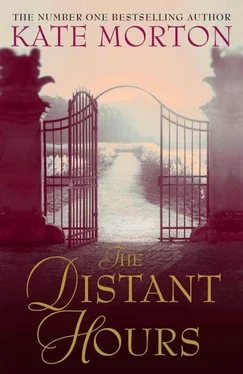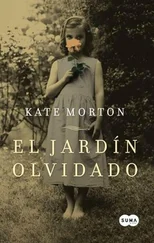That sly smile reappeared. ‘You’re astute. Good. I had hoped you might be. I wasn’t entirely sure after our first meeting and I didn’t fancy dealing with an imbecile.’
I was torn between ‘Thank you’ and ‘Sod off’ and elected to compromise with a cool smile.
‘We don’t know many people,’ she continued on an exhalation, ‘not any more. And then when you came to visit, and that Bird woman told me that you worked in publishing. Well, I began to wonder. Then you told me that you hadn’t any siblings.’
I nodded, trying to follow the logic in her explanation.
‘And that’s when I decided.’ She drew again on her cigarette, performed a piece of fussy stage business in retrieving an ashtray. ‘I knew you wouldn’t be biased.’
I was feeling less and less astute by the second. ‘Biased about what?’
‘About us.’
‘Miss Blythe, I’m afraid I don’t understand what any of this has to do with the article I’ve been commissioned to write; with your father’s book and your memories of its publication.’
She waved her hand impatiently and ash fell to the floor. ‘Nothing. Nothing. It has nothing at all to do with any of that. It has to do with what I’m going to tell you.’
Was that when I felt it, the ominous creeping beneath my skin? Perhaps it was only that a gust of autumn chill came then, blustering beneath the door, angering the lock so that the key fell to the floor. Percy ignored it and I tried to do the same. ‘With what you’re going to tell me?’
‘Something that needs to be set right, before it’s too late.’
‘Too late for what?’
‘I’m dying.’ She blinked with customary cold frankness.
‘I’m so sorry-’
‘I’m old. It happens. Please don’t patronize me with unnecessary sympathy.’ A change came over her face, like clouds scudding across the wintry sky, covering the last of the sun’s feeble light. She looked old, tired. And I saw that what she said was true – she was dying. ‘I was dishonest when I telephoned that woman, that publisher, and asked for you. I regret any inconvenience caused to the other fellow. I’ve little doubt he’d have done an excellent job. He was nothing if not professional. Nonetheless, it was all I could think to do. I wanted you to come and I didn’t know how else to make that happen.’
‘But why?’ There was something new in her manner, an urgency that made my breathing grow shallow. The back of my neck prickled, with cold but with something else, too.
‘I have a story. I am the only one who knows it. I am going to tell it to you.’
‘Why?’ It came out little louder than a whisper and I coughed, then asked again. ‘Why?’
‘Because it needs to be told. Because I value accurate records. Because I cannot carry it further.’ Did I imagine that she glanced then at Goya’s monsters?
‘But why tell me?’
She blinked. ‘Because of who you are, of course. Because of who your mother was.’ The slightest of smiles and I glimpsed that she was taking certain pleasure from our conversation, from the power, perhaps, that she wielded over my ignorance. ‘It was Juniper who picked it up. She called you Meredith. That’s when I realized. And that’s when I knew you were the one.’
The blood drained from my face and I felt as shameful as a child caught telling lies to their teacher. ‘I’m so sorry I didn’t say anything earlier, I only thought-’
‘Your reasons don’t interest me. We all have secrets.’
I caught the rest of my apology before it tumbled from my lips.
‘You are Meredith’s daughter,’ she continued, her pace quickening, ‘which means you are like family. And this is a family story.’
It was the last thing I’d expected her to say and I was floored; something inside me beat with glad empathy for my mother, who had loved this place and long believed herself so poorly used. ‘But what do you want me to do?’ I said. ‘With your story, I mean.’
‘Do with it?’
‘Do you want me to write it down?’
‘I shouldn’t think so. Not write it down, just set it right. I need to trust you to do that…’ She pointed a sharp finger but the stern gesture was weakened when the face behind it fell to repose. ‘Can I trust you, Miss Burchill?’
I nodded, even though her manner gave me grave misgivings as to precisely what it was she asked of me.
She seemed relieved, but her guard dropped only for an instant before she picked it up again. ‘Well then,’ she said bluntly, turning her gaze towards the window from which her father had fallen to his death. ‘I hope you’re able to go without lunch. I haven’t time to waste.’
Percy Blythe’s Story
Percy Blythe began with a disclaimer. ‘I am not a storyteller,’ she said, striking a match, ‘not like the others. I only have one tale to tell. Listen carefully; I won’t be telling it twice.’ She lit her cigarette and leaned back in her chair. ‘I told you that this has nothing to do with the Mud Man , but I was wrong. In one way or another, this story begins and ends with that book.’
An arm of wind reached down the chimney to tease the flames and I opened my notebook. She’d said it wasn’t necessary, but I nursed a strange feeling of disquiet and it soothed me in some way to hide behind the purpose of my creamy black-lined pages.
‘My father told us once that art was the only form of immortality. That was the sort of thing he used to say; something, I imagine, that his own mother told him. She was a gifted poet and a great beauty, but she was not a warm woman. She could be cruel. Not intentionally; her talent made her cruel. She gave my father all sorts of odd ideas.’ Percy’s mouth twisted and she paused to smooth the hair at the nape of her neck. ‘He was wrong, anyway. There is another type of immortality, far less sought or celebrated.’
I leaned forward a little, waiting for her to tell me what it was, but she didn’t. I would become used to her sudden shifts of topic that stormy afternoon, the way she shone a spotlight on a certain scene, brought it to life only to turn her abrupt attention to another.
‘I’m quite sure my parents were happy once,’ she said, ‘before we were born, but there are two types of people in this world. Those who enjoy the company of children and those who don’t. My father was of the former type. I think he surprised even himself with the force of his affection when Saffy and I were born.’ She glanced at the Goya painting and a muscle twitched in her neck. ‘He was a different man when we were young, before the Great War, before he wrote that book. He was an unusual man for his time and class. He adored us, you see – never mere fondness; he delighted in us and we in him. We were spoiled. Not with objects, though there was no shortage of those, but with his attention and his faith. He thought that we could do no wrong and indulged us accordingly. I don’t imagine it is ever good for children to find themselves the subject of such idolatry. Would you like a glass of water, Miss Burchill?’
I blinked. ‘No. No, thank you.’
‘I will, if you don’t mind. My throat – ’ She set her cigarette in the ashtray and took up a jug from a set of low shelves, filling a cut-glass tumbler. She gulped, and I noticed that despite her clear, flat tone, those piercing eyes, her fingers were shaking. ‘Did your parents spoil you when you were small, Miss Burchill?’
‘No,’ I said. ‘No, I don’t think they did.’
‘I don’t think they did either. You don’t carry the sense of entitlement of a child who’s been placed front and centre.’ Her gaze drifted again to the window, where the weather was gathering greyly. ‘Daddy used to put the two of us in an old perambulator that had been his when he was small and take us on long walks about the village. When we got older he’d have Cook make up elaborate picnics and the three of us would explore the woods, stroll across the fields, and he would tell us stories, speaking to us about matters that seemed grave and wonderful. That this was our home, that our ancestors’ voices would always speak to us, that we could never be alone as long as we were within reach of our castle.’ A faint smile tried to settle on her lips. ‘At Oxford, he’d been a great one for languages, the old tongues, and bore a particular fondness for Anglo-Saxon. He used to do translations for his own pleasure, and from a very early age we were allowed to help. Up here in the tower, usually, but sometimes in the gardens. One afternoon we lay together, the three of us on a picnic rug, looking back towards the castle on the hilltop, and he read to us from “The Wanderer”. It was a perfect day. Those are rare and it’s as well to remember them.’ She paused then, her face relaxing somewhat as she slipped deeper into memory. When finally she spoke again, her voice was reedy. ‘The Anglo-Saxons had a gift for sadness and longing, and heroics, of course; children, I suspect, are predisposed to all three. Seledreorig .’ The word was like an incantation in the round stone room. ‘Sadness for the lack of a hall,’ she said. ‘There’s no word like it in the English language, and yet there ought to be, don’t you think?… There now. I’ve drifted off track.’
Читать дальше












